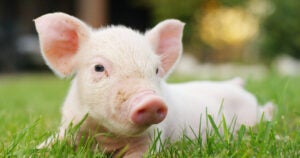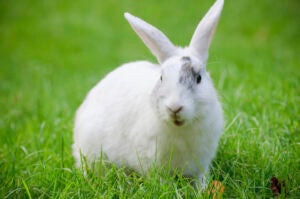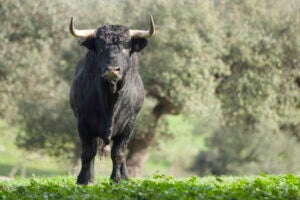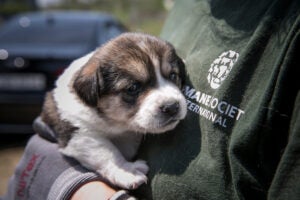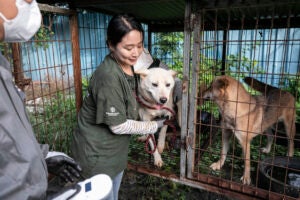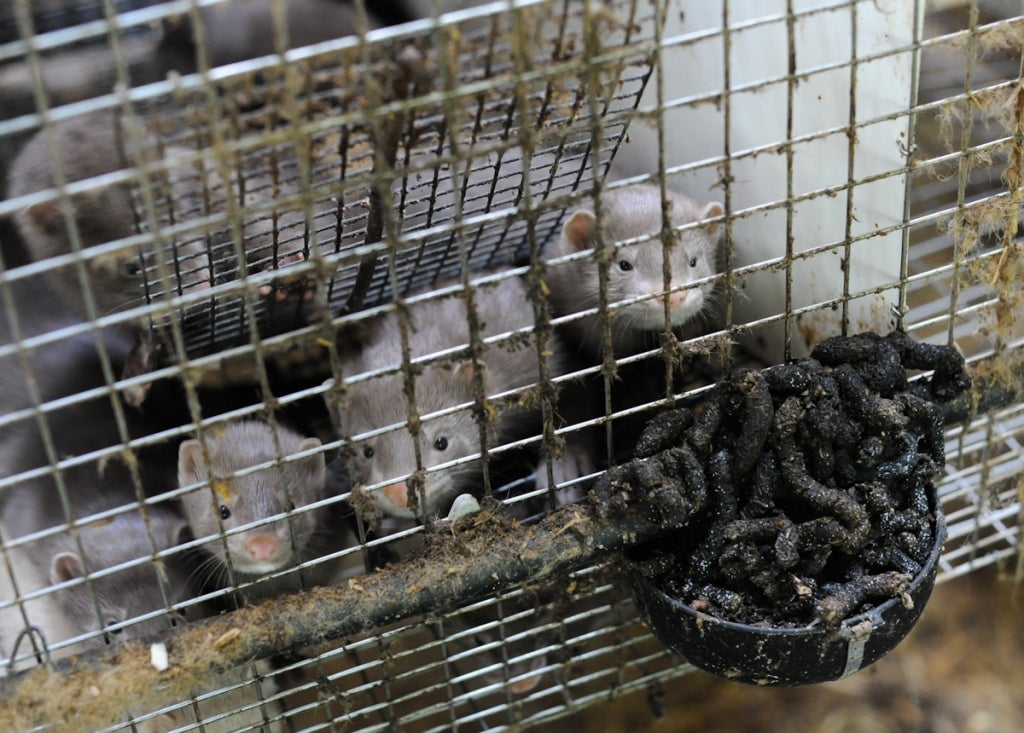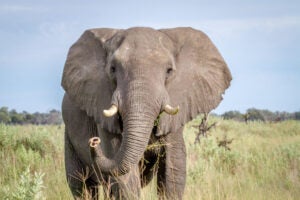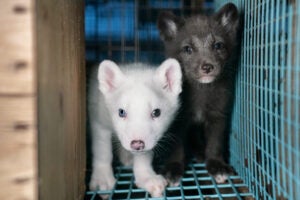
BRUSSELS—The European Parliament has adopted a resolution which calls for the EU Commission and Member States to help consumers eat a more healthy, plant-based diet and reduce overconsumption of meat to reduce cancer risks. It also calls for greater investment in non-animal biomedical test methods to replace obsolete animal models in cancer research. Europe accounts for a quarter of the world’s cancer cases with 1,3 million EU deaths each year.
The adopted resolution on Strengthening Europe in the fight against cancer—towards a comprehensive and coordinated strategy comes in advance of Cancer Prevention Action Week, and follows the EU’s launch of a 4 billion euro Beating Cancer Plan. Amongst a raft of other measures, the resolution:
- “emphasises the role of a healthy diet in preventing and limiting the incidence and the recurrence of cancer, and stresses that individual cancer risks can be reduced by an increased consumption of sustainably-produced plants and plant-based foods, such as fresh fruits and vegetables, whole grains and legumes;
- emphasises the need to address the overconsumption of meat and ultra-processed products, and products high in sugars, salt and fats;
- asks the Commission and the Member States to encourage and help consumers to make informed, healthy and sustainable choices about food products by means of the adoption of a mandatory and harmonised EU front-of-pack nutritional label based on robust and independent scientific evidence;
- supports fiscal measures to make fresh foods (such as fruits and vegetables, pulses, legumes and wholegrains) more affordable and accessible at national level;
- calls for comprehensive nutrition public campaigns and supports nutrition counselling to be available in primary healthcare.”
Dr Joanna Swabe, senior director of public affairs for Humane Society International/Europe, said:
“There is mounting scientific evidence that the consumption of meat and dairy products can have a detrimental impact on human health. The World Health Organisation warns that processed meats are carcinogenic, that red meat probably increases your risk of bowel cancer and that eating the equivalent of less than two slices of bacon a day increases your chance of colorectal cancer by 18%. So it is heartening to see the European Parliament acknowledge the risk factors associated with animal products, as well as the protective benefits of eating a more plant-based diet. Alongside reducing climate change emissions and sparing animals suffering on factory farms, the human health advantages of eating more plant-based foods present another compelling reason to transition Europe to a more resilient food system.”
The adopted resolution also highlights the importance of non-animal research methodologies as more efficient and reliable in cancer research, and recognises the significant role of real-world data, mathematical modelling, artificial intelligence and digital tools in developing innovative and cost-efficient cancer treatments, which will reduce the use of animals in research.
Cancer is one of the main areas of experimental animal use in Europe, using nearly one million animals in 2017 (the latest EU statistics available), with animal use increasing despite the very poor translation of animal data to human use. The largest proportion of drug failures is in cancer, where there is approximately 5% likelihood of a drug being approved following animal trials. This means that 95% of the drugs that seem to offer hope for cancer treatment when tested in animal models (mostly mice) fail to have an impact for patients. The adopted resolution:
- “stresses the importance of investing in the development of non-animal research methodologies [to] increase efficiency in research, and reduce unnecessary and often less reliable experiments on animals;
- underlines that non-animal methods for testing the carcinogenicity of environmental chemicals, such as testing strategies focused on the underlying biological mechanisms that lead to cancer, should provide more relevant information than the animal-based methods currently in use for chemical safety assessment, thus enabling authorities to take swifter measures to limit exposure to harmful chemicals that could lead to cancer.”
Helder Constantino, director of research policy for HSI’s Research & Toxicology department, added:
“The EU Beating Cancer initiative offers an excellent opportunity to promote and seek additional funding for more advanced and human biology-based research approaches with the potential to overcome the limitations associated with current animal models and provide more human data to tackle the dramatic rise in cancer in Europe. HSI welcomes the Parliament’s emphasis on the importance of investing in new, non-animal research technologies, such as next-generation computing and miniature human organoids. , Non-animal methods for testing the cancer-causing potential of environmental chemicals should provide more human-relevant information than the old, slow and unreliable rodent tests currently in use. This will enable authorities to take swifter measures to reduce human exposure to chemicals of concern.”
Although the adopted resolution is non-binding, Humane Society International urges the European Commission and Member States to take note of its crucial message, and to continue to take concerted efforts to promote the protein transition, as well as to grant additional funding for the development and use of non-animal research methods.
Background information
Following the European Commission’s adoption of Europe’s Beating Cancer Plan in 2020, the European Parliament established a Special Committee on Beating Cancer (BECA) in recognition of the disproportionate impact of cancer on Europeans. The number of cancer diagnoses in Europe is projected to increase from 3.5 million to more than 4.3 million newly diagnosed cases by 2035.
-
- The WHO has classified processed meats, including ham, bacon, salami, sausages and frankfurters, as a Group 1 carcinogen (i.e. known to cause cancer). Processed meats have been linked to increased risk of colorectal cancer, with experts concluding that each 50g portion of processed meat eaten daily increases the risk of colorectal cancer by 18%. Red meat, such as beef, lamb and pork, has been classified by the WHO as a Group 2A carcinogen (i.e. probably causes cancer). Consumption of red meat was linked to colorectal cancer, as well as pancreatic and prostate cancers.
- All animal proteins stimulate the growth hormone IGF-1; the more IGF-1 present in your bloodstream, the higher the risk for cancer development. Research shows that only those following a fully plant-based, vegan diet will experience cancer protection due to decreased growth hormone and increased binding protein levels.[1], [2]
- Research shows that high-fibre diets protect against colon cancer and can even increase survival of those already diagnosed with the disease. Stomach cancer and breast cancer are less common with high-fibre diets. The best sources of fibre are minimally processed whole grains, beans, peas, lentils, vegetables, and fruits.[3],[4],[5],[6], [7], [8], [9]Beta-carotene, present in dark green, yellow, and orange vegetables, also helps protect against lung cancer and may help prevent cancers of the bladder, mouth, larynx, oesophagus and breast.
- In October 2020, the European Commission’s Joint Research Centre (JRC) produced a freely available knowledge base of over 900 non-animal models for breast cancer research. According to the JRC, while “breast cancer is now estimated to be the most frequently occurring cancer, accounting for 13.3% of all new cancer diagnoses during 2020 in EU-27 countries”, disseminating human-biology based methods is key to develop new treatments because “current breast cancer research is too reliant on animal models, mostly using rodents. But rodents provide a poor model for human diseases.”
- According to a scientific expert group of the Organization of Economic Cooperation and Development, “It is now well recognized by the scientific and regulatory community that the conventional approach to carcinogenicity testing, particularly the use of the rodent cancer bioassay has many limitations in terms of reliability and relevance. It is not considered sufficiently fit for the purpose of human health hazard assessment”.
ENDS
Media contact: Yavor Gechev: +359889468098; ygechev@hsi.org
[1] Allen NE, Appleby PN, Davey GK, Kaaks R, Rinaldi S, et al. The associations of diet with serum insulin-like growth factor I and its main binding proteins in 292 women meat-eaters, vegetarians, and vegans. Cancer Epidemiol Biomarkers Prev 2002;11:1441-8.
[2] Allen NE, Appleby PN, Davey GK, Key TJ. Hormones and diet: low insulin-like growth factor-I but normal bioavailable androgens in vegan men. Br J Cancer 2000;83:95-7.
[3] Song M, Wu K, Meyerhardt JA. Fiber intake and survival after colorectal cancer diagnosis. JAMA Oncol. 2018;4:71-79.
[4] Ben Q, Sun Y, Chai R, Qian A, Xu B, Yuan Y. Dietary fiber intake reduces risk of colorectal adenoma: a meta-analysis. Gastroenterology. 2014;146:689 – 699.
[5] O’Keef SJ, Li JV, Lahti L, et al. Fat, fibre and cancer risk in African Americans and rural Africans. Nat Commun. 2015;6:6342-6356
[6] Zhu B, Sun Y, Qi L, Zhong R, Miao X. Dietary legume consumption reduces risk of colorectal cancer: evidence from a meta-analysis of cohort studies. Sci Rep. 2015;5:8797-8804
[7] Risch HA, Jain M, Choi NW, et al. Dietary factors and the incidence of cancer of the stomach. Am J Epidemiol. 1985;122:947-959.
[8] Lubin F, Wax Y, Modan B, et al. Role of fat, animal protein and dietary fiber in breast cancer etiology: a case control study. J Natl Cancer Inst. 1986;77:605-612.
[9] Farvid MS, Eliassen AH, Cho E, Liao X, Chen WY, Willett WC. Dietary fiber intake in young adults and breast cancer risk. Pediatrics. 2016;137:e20151226 – e20151239

